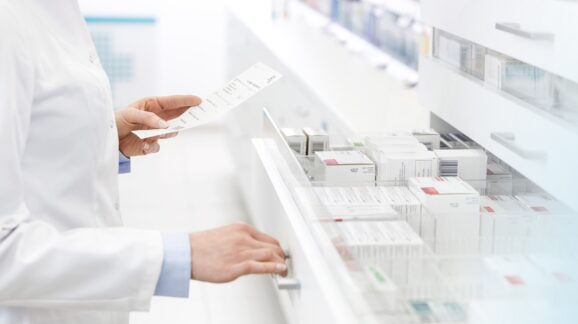Pharmaceuticals: Marching into Trouble
Disregarding the spirit and intent of the highly successful Bayh-Dole Act is a recipe for suppressing the innovation that improves Americans’ health and saves lives.
The National Institutes of Health recently rejected a request by private petitioners to exercise “march-in rights” under the 1980 Bayh-Dole Act to control the price of an expensive prostate-cancer drug, Xtandi. This marks the second time the agency has rejected march-in rights for this drug and the eighth time in the statute’s 43-year history that NIH has rejected march-in petitions in which the government is asked to vitiate private companies’ patent rights by granting licenses to other companies to produce a drug that resulted, in part, from government-funded research.
At the same time though, NIH’s parent agency, the Department of Health and Human Services, along with the Department of Commerce, announced the formation of an Interagency Working Group to develop “criteria and processes for making determinations where different factors, including price,” can justify application of Bayh-Dole’s march-in provisions. This effort to include consideration of drug prices in march-in determinations violates the explicit intent of the statute, exposes the Biden administration’s ignorance of how drug development occurs, and will destroy medical innovation — all while doing nothing to bring down drug costs.
Bayh-Dole — also known as the Patent and Trademark Law Amendments Act — was intended to ensure that the public would not be deprived of the benefits of inventions that resulted from government-funded research. Prior to its enactment, the government owned inventions made with federal funding and granted only nonexclusive licenses to developers. Companies would not invest the money and time to turn an invention into a practical product unless they could own and exclude others from exploiting it. Consequently, the federal government owned tens of thousands of patents that languished unlicensed and undeveloped. None were used to develop therapeutics or vaccines.
Bayh-Dole facilitated the commercialization and availability of inventions developed with public funds by allowing universities, non-profits, and small businesses to retain ownership of patents for inventions discovered with the aid of federal funding. It recognized that while the government funds basic research that sometimes suggests drug candidates, the lengthy and costly process of turning discoveries into usable products is always performed by private companies. As Senators Birch Bayh and Bob Dole noted, “Government alone has never developed the new advances in medicines and technology that become commercial products. For that, our country relies on the private sector.”
The act was highly successful, leading to the development of the nation’s biotechnology sector. Universities created offices of technology licensing, and the number of patents, licenses, and new drugs skyrocketed. The statute has been credited with “unlock[ing] all the inventions and discoveries that had been made in laboratories throughout the United States with the help of taxpayers’ money.”
To ensure that beneficial inventions are utilized, the Act allows the federal government to “march-in” to the intellectual property rights of the inventor and grant a license to “a responsible applicant or applicants” in two circumstances: if 1) the patentee and its licensee have not taken effective steps to achieve “practical application” of the subject invention — defined elsewhere in the statute as making the invention “available to the public on reasonable terms,” or 2) action is necessary to alleviate health or safety needs which are not being reasonably satisfied by the rights-holder — an example of this would have been if a company had developed an effective Covid-19 vaccine but had been unable to produce it in adequate amounts.
Read the full article on National Review.
